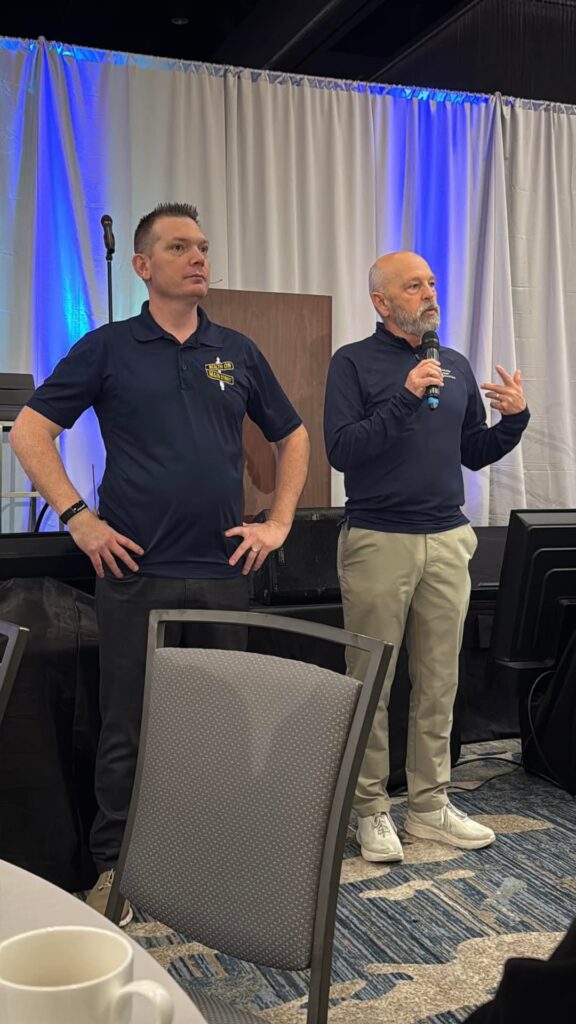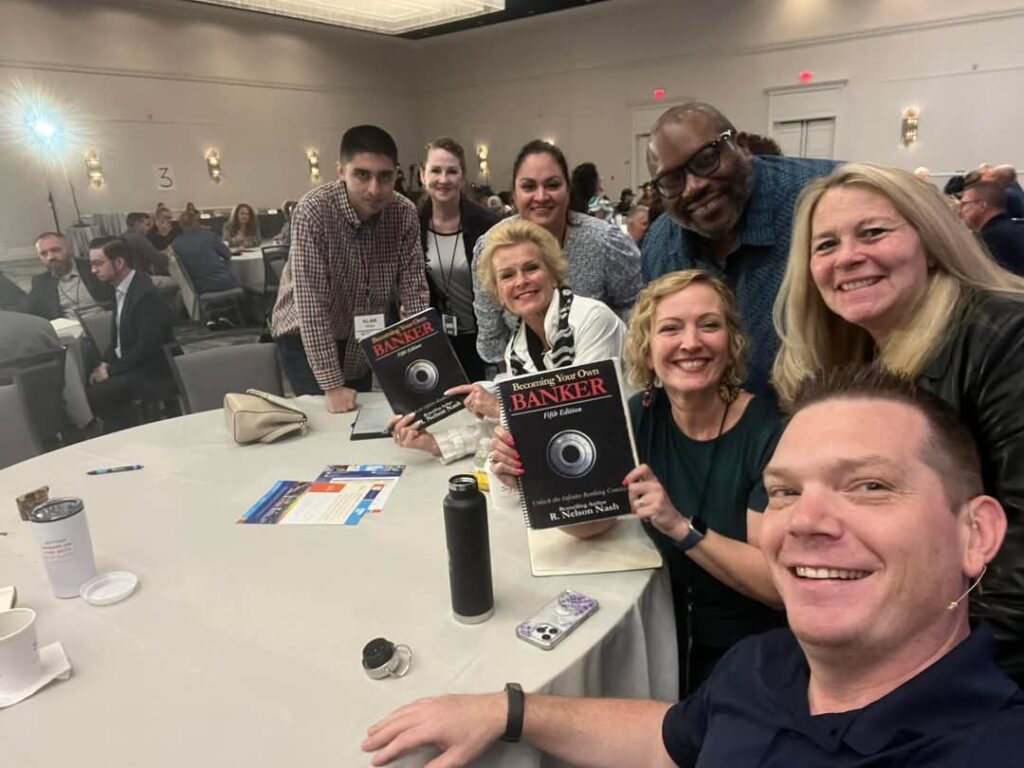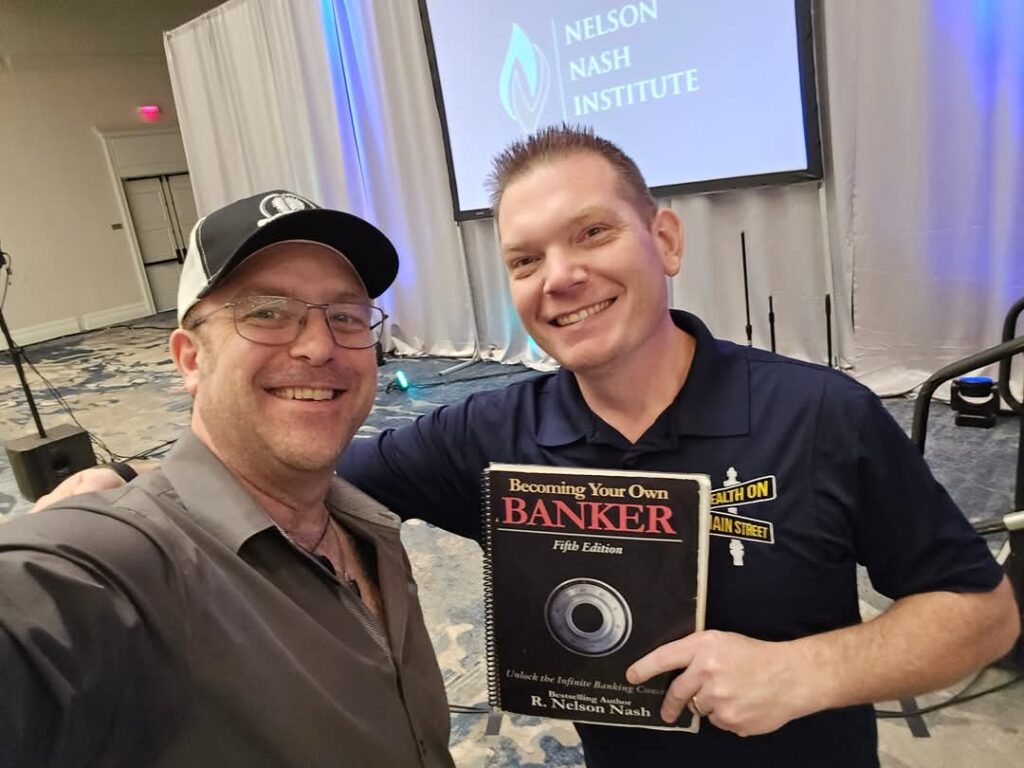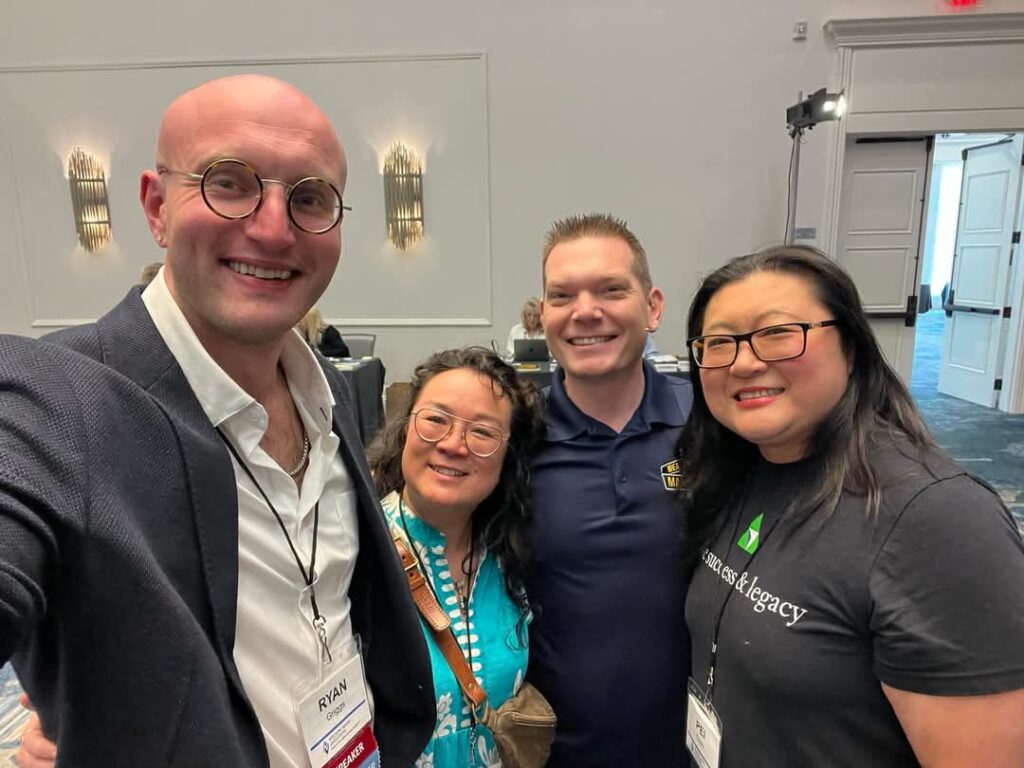I’ve had the honor of emceeing the Nelson Nash Institute’s Annual Think Tank for three consecutive years—and it becomes more meaningful each time.
This private, invite-only event brings together over 250 financial professionals from North America committed to teaching and implementing the Infinite Banking Concept (IBC) in their communities.
For me, this isn’t just another speaking engagement. It’s personal—and it all started with a pivotal moment in 2017.
From Nelson’s First Invite to a Tradition
At the Birmingham conference in 2017, R. Nelson Nash, the founder of IBC, pulled me aside and said, “Richard, I want you to host next year.”
I was stunned. I wasn’t on the board. I wasn’t even sure I was qualified. But he trusted me.
That next year, I became the first non-board member to emcee the Think Tank. That single invitation shifted my trajectory as an educator and advocate of IBC.
Since then, David Stearns and Carlos Lara—two of Nelson’s closest colleagues—have graciously invited me back to help carry on the tone and purpose Nelson envisioned for this gathering.

Why the Think Tank Is Different
There’s no stage selling. No product pitches. Just real conversations about helping families reclaim control over their finances.
Topics covered include:
- Multi-generational IBC implementation—with real case studies from families using it for over a decade
- Policy design insights from attorneys and field-tested agents
- Economic updates focused on interest rate shifts and how they impact whole life structures
- A standout session by Dr. Robert Murphy, who shared strategies for navigating economic cycles through sound financial planning
These sessions aren’t theoretical—they’re built on real-world experience and client results. That’s what sets this event apart.

One of the Most Powerful Moments
One unforgettable moment was hearing Jaxson Lowe, just 16 years old, give his second presentation from the main stage.
He explained how he’s been using a family bank structure since age 11—and how it’s shaped the way he thinks about saving, borrowing, and investing.
His father, Jayson Lowe, has been a friend and fellow IBC practitioner for years. Together, they’re releasing a book called Diapers to Dollars to help parents teach IBC to their kids and teens.
That moment hit me: IBC isn’t just growing—it’s getting younger.

A Real-World Resource: Ryan Griggs’ Book on Buying Whole Life Insurance
Another highlight was Ryan Griggs launching his new book:
How to Buy Whole Life Insurance.
Ryan and I first connected at a previous Think Tank, and I’ve watched him refine this material over several years. His book helps readers cut through policy illustration confusion and filter out sales hype—offering a clear lens to evaluate whole-life policies.
I’ve already recommended it to clients, and it was exciting to see this project come to life.

What We’re Up Against: Fractional Reserve Banking
One recurring discussion at the Think Tank revolves around the structural issues of fractional reserve banking.
This system allows commercial banks to lend out multiples of what they actually hold—contributing to inflation and eroding the purchasing power of savings.
In contrast, IBC offers a stable, transparent alternative:
- Store capital in a mutually-owned whole life policy
- Borrow against it on your terms
- Let your cash value keep compounding while in use
It’s a system built on ownership and control.
3 Key Takeaways from the Think Tank
- IBC is becoming generational. Young people like Jaxson Lowe are not only learning it—they’re teaching it.
- New tools make it easier to implement. From How to Buy Whole Life Insurance to Diapers to Dollars, families now have better educational resources.
- Nelson’s vision lives on. This event remains grounded in its original mission: financial freedom through personal responsibility and education.
Interested in Infinite Banking Concept?
Start with Nelson Nash’s foundational book, Becoming Your Own Banker. It remains the best place to understand the core principles of IBC.
If you’ve ever attended a Think Tank—or are just getting started with IBC—I’d love to hear what stood out to you. Let’s keep the conversation going.